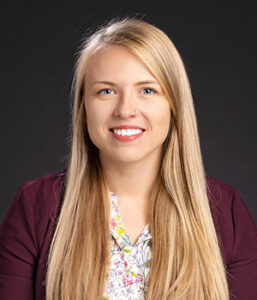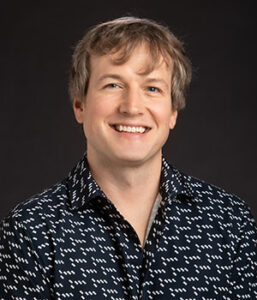School Psychology EdS
School psychology is not only a fulfilling career path — it’s also a growing and in-demand profession.
The U.S. Bureau of Labor Statistics predicts employment of school psychologists will continue to grow because of an increased awareness of the connection between mental health and learning. These workers also will be needed to help students whose educational, behavioral or developmental issues affect their ability to learn.
At UWM, you’ll develop the skills and knowledge you need to succeed in this growing field. The Department of Educational Psychology offers an EdS degree program with a concentration in School Psychology. Our students gain a broad theoretical background, as well as evidence-based clinical skills through didactic, field placement, practica and internship experiences.
Program Type
Program Format
On Campus
Why Choose Our Program?
- The School Psychology EdS (Educational Specialist) Program is fully accredited by the National Association of School Psychologists until 2027. Annual Report and Outcome Data can be found on the National Association of School Psychologists website.
- The School Psychology Program adheres to American Psychological Association and National Association of School Psychologists guidelines for graduate training. Both degree programs are NASP-accredited, and the PhD program is also accredited by the APA.
- The program and department are actively engaged in promoting diversity, equity and inclusion through curriculum, research and advising.
- You’ll work alongside internationally known faculty who are leaders in their field and have the opportunity to play in active role in faculty research.

With a strong urban mission, our program is dedicated to increasing knowledge, sensitivity and awareness of practices best suited for individuals from diverse socio-cultural backgrounds. We use a scientist-practitioner model and emphasize principles of biological, psychological, cultural and sociological sciences as applied to urban schools, mental health and educational settings.
The School Psychology EdS (Educational Specialist) program will prepare you to work as a school psychologist and leads to licensure from the Wisconsin Department of Public Instruction. Based on a scientist-practitioner model and coursework in educational psychology and complementary disciplines, our program emphasizes a concrete link between theory, research and practice through core school psychology courses and supervised practical and internships.
More Reasons to Choose Our Program
- Our beautiful campus — just blocks from Lake Michigan, 15 minutes from downtown Milwaukee and 90 minutes from Chicago — ensures plenty of practica, internship and networking opportunities.
- UWM is Wisconsin’s most diverse university and has more than 50 years of training school psychologists who are multiculturally competent and prepared to work in urban settings.
- In 2013, the Department of Educational Psychology won the American Psychological Association’s prestigious Bersoff Presidential Cultural Award for its success in recruiting and graduating doctoral students from racial/ethnic minorities as well as other countries.
Program Handbook
Learn more through our School Psychology EdS Program Handbook, which describe the program models, entry requirements, objectives, typical course of study, and completion requirements in detail.
Career
The internship required for the School Psychology EdS degree is typically a paid internship occurring for one-year on a full-time basis.
Graduates of the EdS program over the past 20 years have a 100% job placement rate. Most EdS students secure a school psychologist position in Wisconsin; some seek and secure positions out-of-state. Most interns continue employment as school psychologists in the same school district upon completion of their internship.
Program Requirements
Upon completing 31 credits for the MS degree in School Psychology in the first year, students must complete a minimum of 38 credits to complete the requirements for an EdS degree in School Psychology. On a full-time basis, the School Psychology EdS portion of the degree is completed in the second and third years. Candidates must be available to complete a 600-hour practica over their second academic year and to complete an internship of 1,200 hours (which is typically a paid position as a school psychologist) in the third year.
Students typically take classes related to the major roles and functions of school psychologists in intervention, consultation and assessment, as well as foundational courses in related disciplines (measurement, development, counseling, statistics) and education. Students are also required to complete various field-based projects during practica and internship.
Application Process
If you are interested in the School Psychology EdS program, the first step is to apply to the Educational Psychology MS with the concentration in School Psychology. You will apply to the EdS degree after finishing the MS requirements as a current student in the program.
If you have a MS degree in School Psychology or closely related field and are interested in being considered for the School Psychology EdS program, please contact Dr. Kyongboon Kwon at kwonk@uwm.edu to determine an appropriate program for application.
- Associate Professor, Educational Psychology
- Program Director, School Psychology MS/EdS
- kwonk@uwm.edu
- Enderis Hall 721
- Kellner Professor, Educational Psychology
- Program Director, School Psychology PhD
- Training Director, School Psychology EdS/PhD
- kstoiber@uwm.edu
- Enderis Hall 775
Kyongboon Kwon, PhD, Associate Professor
Dr. Kwon’s research focuses on children’s peer socialization in schools. She focuses on children’s naturally occurring peer groups (e.g. cliques, friendship groups, classroom) and their effect on children’s social, emotional, and academic functioning. For example, she examines peers as an evaluator of others’ emotional characteristics and how they are related to social/behavioral and academic outcomes. She also examines how children regulate peers’ emotions and how theirs is regulated by others through social interactions.
Karen C. Stoiber, PhD, Kellner Professor
Dr. Stoiber’s research interests include examining evidence-based approaches to promoting early literacy, social competencies and implementation of multi-tiered intervention models. Research questions she explores include: How can teachers’ intentional focus on children’s self-control and social competence improve student engagement and academic achievement? How can school psychologists promote student mental health and reduce the achievement gap through multi-tiered systems of support? She co-founded the APA Division 16 Task Force on Evidence-Based Interventions in School Psychology and founded the Translation of Research to Practice Working Group.





